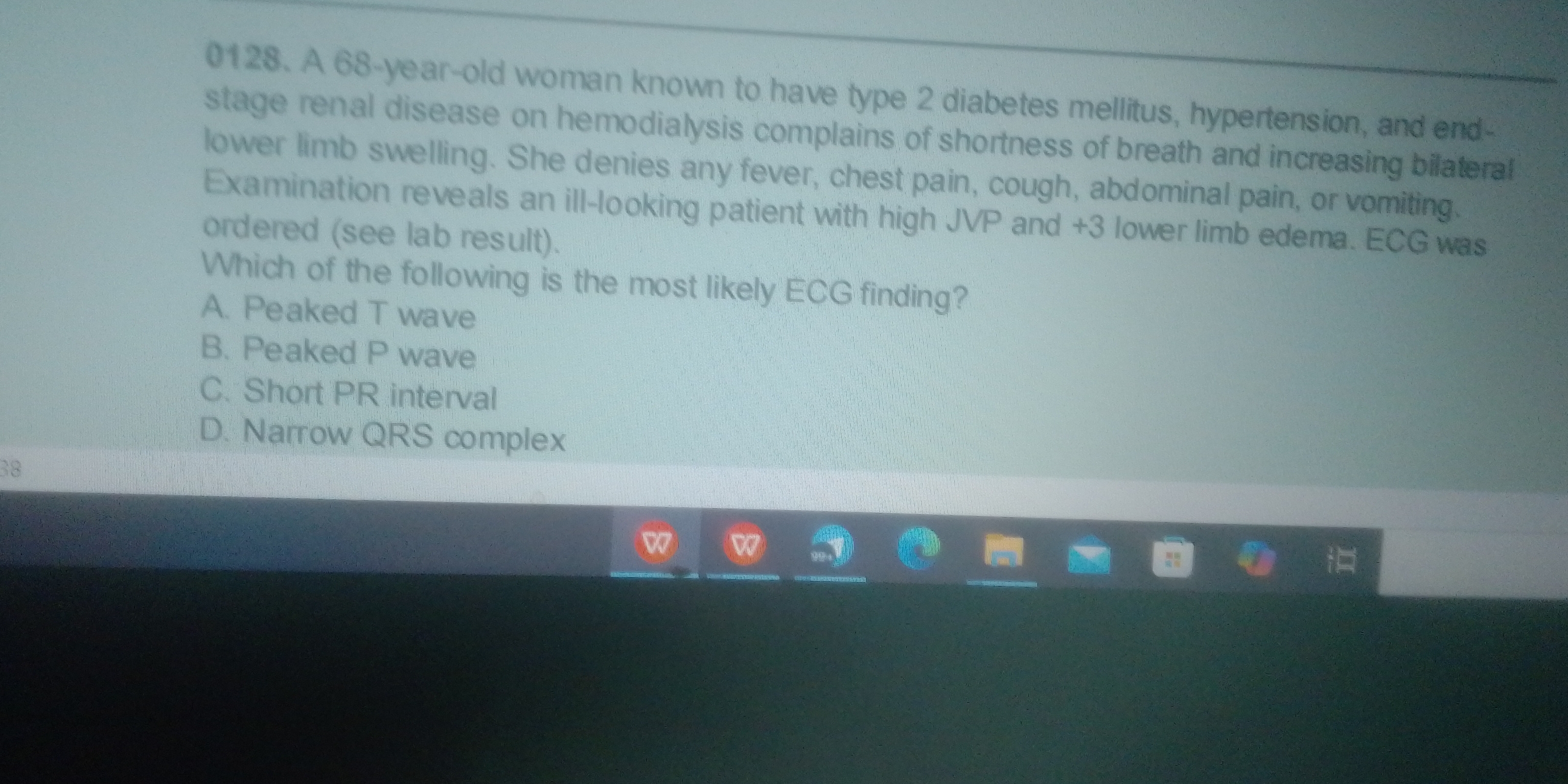A 68-year-old woman known to have type 2 diabetes mellitus, hypertension, and end-stage renal disease on hemodialysis complains of shortness of breath and increasing bilateral lowe... A 68-year-old woman known to have type 2 diabetes mellitus, hypertension, and end-stage renal disease on hemodialysis complains of shortness of breath and increasing bilateral lower limb swelling. Examination reveals an ill-looking patient with high JVP and +3 lower limb edema. ECG was ordered (see lab result). Which of the following is the most likely ECG finding? A. Peaked T wave B. Peaked P wave C. Short PR interval D. Narrow QRS complex

Understand the Problem
The question is asking for the most likely ECG finding for a patient undergoing hemodialysis and showing symptoms of shortness of breath and lower limb swelling. The options provided suggest different types of ECG abnormalities that could be related to the patient's condition.
Answer
Peaked T wave
The final answer is Peaked T wave.
Answer for screen readers
The final answer is Peaked T wave.
More Information
In end-stage renal disease, especially with high potassium levels common in patients on hemodialysis, peaked T waves are a typical ECG finding due to hyperkalemia.
Tips
A common mistake is overlooking the association of hyperkalemia with peaked T waves in renal failure patients.
AI-generated content may contain errors. Please verify critical information